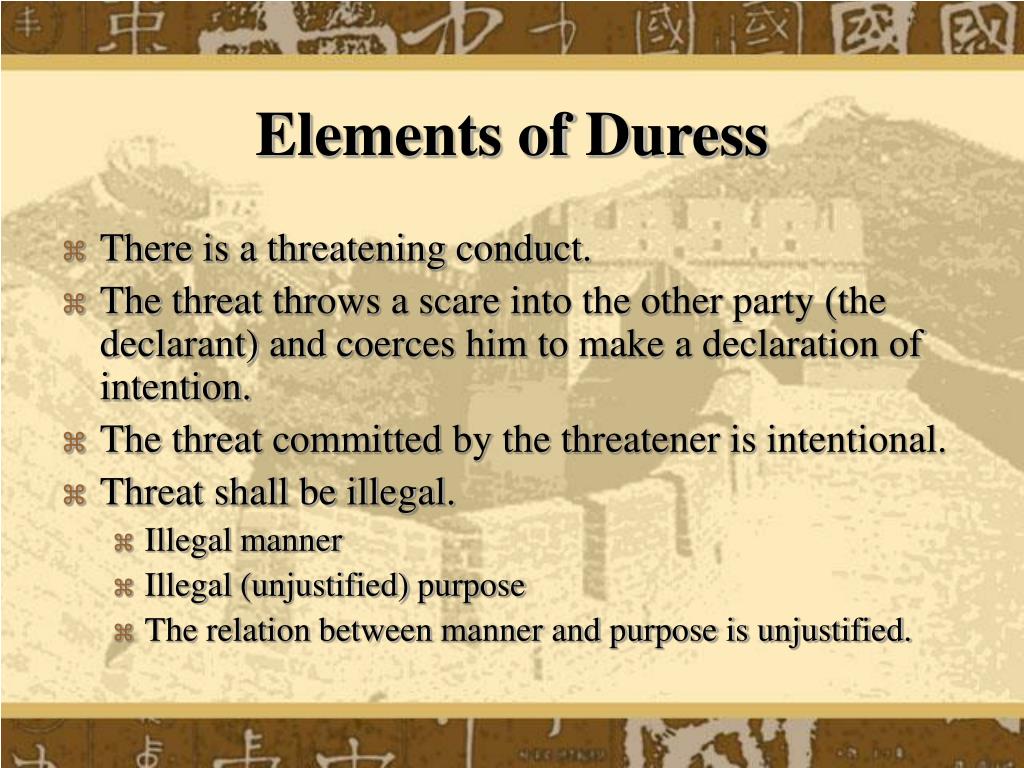


If the court is satisfied beyond reasonable doubt that the answer to this question is “Yes”, then the defence of duress has failed. Would a reasonable person (adhering to the characteristics described in question 2) have taken advantage of that opportunity and avoided or escaped from those threats?.Was a reasonable opportunity available to avoid the threats? For example, by going to the police or taking another course of action.If, however, it is determined at least a reasonable possibility that the accused may have been driven to act in this way, a third question must be considered:Ĭould the accused have avoided the effects of the duress by escaping from the threats without damage to themselves/the threatened person? If the Court is satisfied beyond reasonable doubt that the answer to this question is “no”, then the defence of duress has failed and it is not necessary to proceed to the next question. Would there be a reasonable possibility that this person would have yielded to the threats in the same way that the accused did? Had the same knowledge that the accused had of the impending threat:.Was placed in the same setting and circumstances of which the accused was found, and.Of the same sex and maturity as the accused:.

Of ordinary firmness of mind and will, and.Would the threats have driven a reasonable person to act as the accused did? For example, if a person: If, however, it is determined at least a reasonable possibility that the accused may have been driven to act in this way, a second question must be considered: If the court is satisfied beyond reasonable doubt that the answer to this question is “No”, then the defence of duress has failed and it is not necessary to proceed to the next question. What did these threats lead the accused to believe would happen?.a family member) would soon be killed or seriously injured?
#Duress definition law trial
The Criminal Trial Courts Bench Book recommends the following questions be asked when considering a defence of duress:ĭid the accused genuinely believe that if they did not act in this way, they or someone else (e.g. What factors are considered relating to the defence of duress? Duress is a possible defence to a criminal charge such as assault or affray, where the defendant argues that they were forced to act in this way by someone else under the threat of death or serious harm to the person, their family or dependants.


 0 kommentar(er)
0 kommentar(er)
